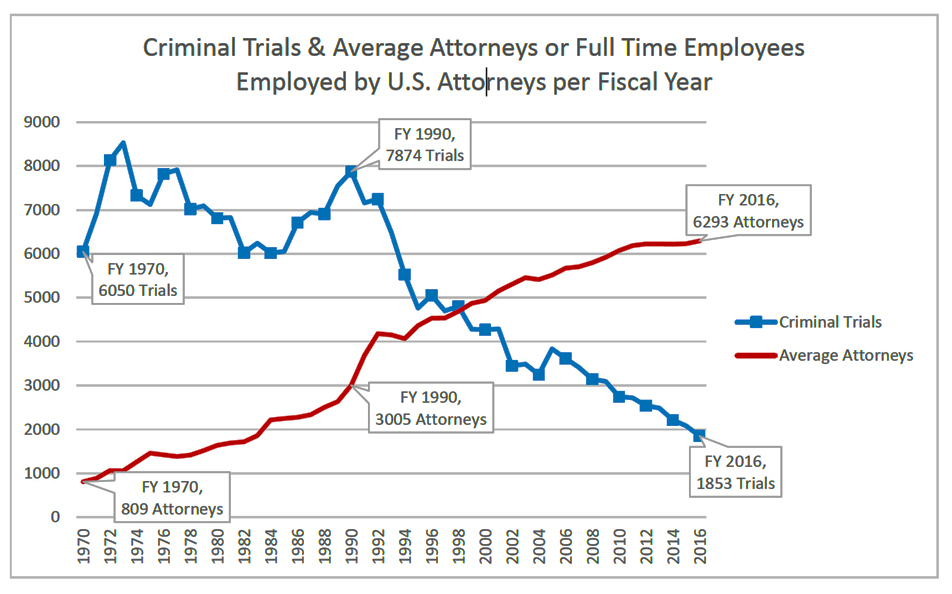We post news and comment on federal criminal justice issues, focused primarily on trial and post-conviction matters, legislative initiatives, and sentencing issues.
DISTRICT JUDGE REJECTS PLEA DEAL, SAYS DEFENDANT SHOULD GO TO TRIAL
Charles Walker, a drug trafficking defendant, cut a plea deal to cop to a single count of distributing heroin, getting five other counts – including one for peddling fentanyl – dismissed.
But when the plea agreement was presented to U.S. District Judge Joseph Goodwin, he did something neither the prosecutor nor defense counsel planned on. He turned them down flat.
In a 28-page order, the judge said one of the chief reasons Chuck should face the “bright light of the jury trial” is because West Virginia is “ground zero” for the opioid epidemic that has been ravaging the nation. “A court should consider the cultural context surrounding the subject’s criminal conduct,” the Judge wrote. “Here, that cultural context is a rural state deeply wounded by and suffering from a plague of heroin and opioid addiction.”
The Judge said a jury trial “reveals the dark details of drug distribution, an abuse to the community, in a way that a plea-bargained guilty plea cannot. A jury trial tells a story… The secrecy surrounding plea bargains in heroin and opioid cases frequently undermines respect for the law and deterrence of crime.” The decision found that the plea deal offered Walker has little to do with justice. “The principal motivation appears to be convenience.”
Chuck’s attorney told the Washington Post, “This is the first time anything like this has happened in 25 years of practicing law.”
 An interesting footnote to the decision is Judge Goodwin’s skewering of the tired rationale that plea bargains are necessary to relieve the overburdened court and prosecutorial systems, which would grind to a halt were it not for deals like the one the government sought to give Charles Walker:
An interesting footnote to the decision is Judge Goodwin’s skewering of the tired rationale that plea bargains are necessary to relieve the overburdened court and prosecutorial systems, which would grind to a halt were it not for deals like the one the government sought to give Charles Walker:
For at least the past forty-six years, the primary justification for plea bargaining has been that the constitutional process of requiring trial by jury in every case overburdens the courts and overworks the prosecutors… The courts are no longer overburdened. Federal prosecutors are no longer overworked. To illustrate, despite the decline in criminal trials, the number of federal prosecutors has… increased more than sevenfold—from 809 in 1970 to 6,075 in 2010. In FY 2016, the number of federal prosecutors had grown to 6,293.
Given the inverse relationship between trials and federal prosecutors, there has been a steady decrease in the average number of criminal trials handled per federal prosecutor. In FY 1973, each federal prosecutor handled over eight criminal trials on average. By FY 2016, the average number of criminal trials handled by each federal prosecutor plummeted to 0.29 trials.
Like federal prosecutors, the number of authorized Article III district court judgeships rose from 394 in 1970 to 663 in 2015.103 Accordingly, the number of criminal trials handled per district judgeship dropped from over twenty-one per year in 1973 to fewer than three per year in 2016. Thus, like federal prosecutors, district court judges are not overburdened by trials.
Because the most common justifications for plea bargaining no longer have any substantial heft, the counterweight of the people’s general interest in observing and participating in their government requires close consideration of a proffered plea bargain in every case.
United States v. Walker, Case No. 2:17-cr-0010 (S.D.W.Va., June 26, 2017)
– Thomas L. Root


